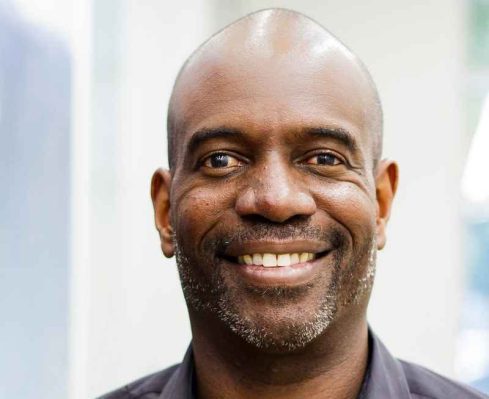Last week, we suggested that for a truly diverse venture industry, the limited partners who provide investing capital to VCs — institutions like universities and hospital systems — need to start incorporating diversity mandates into their work. Say a venture firm wanted to secure a commitment from the University of Texas System; it would first need to agree, in writing, to pour a certain percentage of its capital into startups founded by underrepresented groups.
Given how fragmented the world of institutional investing, the idea might sound impracticable. But Lo Toney, one of a small but growing number of black VCs in Silicon Valley, suggests it might actually be inevitable. He points, for example, to pension funds like the California Public Employees’ Retirement System, which manages the assets of 1.6 million employees, many of whom “look like me,” says Toney. Imagine what might happen if they started asking more questions about who is managing their money.
Not that Toney is waiting on this development. He doesn’t need to. As a former partner at Comcast Ventures, then GV, Toney was able to secure Alphabet as the anchor investor in his own investment firm, Plexo Capital, whose debut vehicle has been funding venture outfits, as well as making direct startup investments. Now, with renewed attention being paid to the dearth of people of color throughout the startup industry, Plexo has LPs knocking on its door again, and Toney’s plans for that second fund involve not just helping his current fund managers but helping more investors of color form venture firms of their own.
It’s an extension of work that’s already in progress. Plexo, which closed its debut fund last year with $42.5 million — including from the Ford Foundation, Intel, Cisco Systems, the Royal Bank of Canada, and Hampton University — already has stakes in 20 funds, including Precursor Ventures, Ingressive Capital, Kindred Ventures, Equal Ventures, Boldstart Ventures, and Work-Bench.
Almost all are run exclusively or in part by people of color. Meanwhile, Work-Bench has a female cofounder in Jessica Lin, a former Cisco Systems manager. “We have enough reports from the Harvard’s and the McKinsey’s of the world to show us that diversity at all levels matters,” says Toney. “We see better performance from companies with diverse boards, public companies with diverse management teams; when there are diverse managers, we see better performance.”
With his second fund, he’s hoping to turn the dial even further. More specifically, he says, to better assist those GPs in Plexo’s first fund and to fund more black GPs, it aims to help “develop a Y Combinator of sorts” that helps them understand some of the “nuances of making the transition from being a great investor to being a great fund manager.”
Part of the idea is to institutionalize the work that Plexo already does in an ad-hoc way around helping managers to prepare marketing materials, pitch their strategy to both high-net-worth individuals and institutions, and manage LP communications after that base of investors has been established. And those are just three aspects of the many elements of fund management with which Plexo can help, he says.
Plexo is also exploring “putting a strategy in place [to] help a lot of these younger GPs with working capital, to be able to incur the expenses that it takes to start a fund [given that] it can take, on average, a million dollars.” (That’s taking into account no salary, travel expenses, service providers, and the money that a general partner typically has to kick in to his or her own the fund, he adds.)
It’s a model that Plexo thinks it can use to move things along faster than were it solely investing in individual companies.
Still, Plexo can’t do it alone. Neither can its friends and allies, some of whom include Elliott Robinson of Bessemer Venture Partners, Frederik Groce of Storm Ventures and Sydney Sykes of the retail startup Dolls Kill, who separately steer a young organization called BLCK VC that works to connect and advance black venture investors.
Toney remains especially concerned over the few people of color at bigger and later-stage venture firms — investors who might otherwise have the networks and know-how to support black entrepreneurs as their startups mature. It’s a valid worry. According to a 2018 report in The Information, there were just seven black decision-makers at the then 102 venture firms with more than $250 million under management, and those numbers are relatively unchanged. The dearth is particularly glaring for black investors who are women.
The industry could, slowly, over time, grow less homogenous and more inclusive of underrepresented groups. But it would happen faster if institutions that accept federal funding or else manage the money of public employees decided to focus more on the issue. In fact, it’s conceivable that their constituents — including donors and employees through their pension fund contributions — might at some point insist on it.
“There’s often not really a collective realization of the power and influence that one can have within our asset class to actually affect change,” says Toney. “I suspect — and I don’t know this, and I’m not part of any initiatives — that we’ll see more of these [pension] funds take a stance, and that [this shift] will come from the bottom up, from their employee base.”
It might not take much to get the ball rolling. “They could put the pressure on our industry even simply asking questions [including]: ‘How many black partners do you have?’ ‘How many women do you have?’ ‘What does the composition of your portfolio look like?’”
“Even just asking those questions as a first step — that in and of itself would affect change,” he says, “because who wants to look bad when answering those questions?”
